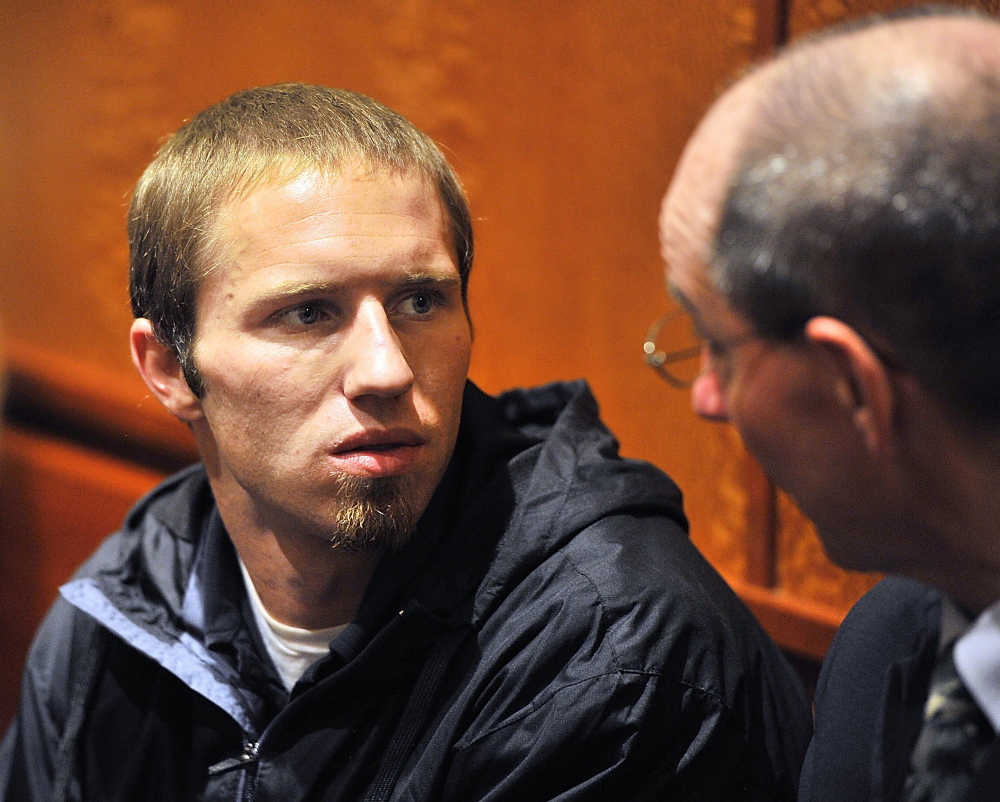More than five years after toddler Ayla Reynolds disappeared from her Waterville home, triggering the largest police investigation in state history and drawing national attention to the case, her mother will go to probate court seeking to have a judge formally declare the child dead.
Trista Reynolds and her family have said a court ruling declaring Ayla dead is necessary to “preserve the rights of Ayla’s estate” to bring a lawsuit. That probate court hearing is set for Sept. 21.
Trista Reynolds, who until now has commented for stories about her daughter, said in a brief phone interview Tuesday afternoon that she has no comment and suggested questions be directed to her family lawyer, William Childs.
Childs said in a phone interview that he was not ready to do a news conference or interviews and he has a “couple of things I’ve got to get squared away” before doing so. Childs said he plans to make an announcement about the case in about two weeks. He spent much of Tuesday dealing with reporters’ calls, he said, and could not accommodate everyone’s schedule to discuss the case.
“I want to do this once and once only,” he said. “I want to get all my ducks in a row before I actually do it.”
On May 17, Cumberland County Probate Judge Joseph Mazziotti named Trista Reynolds personal representative of Ayla’s estate. Mazziotti’s order, which states Ayla “is dead,” led some Maine TV news outlets on Tuesday to report erroneously that the court had declared the child dead.
But in order for Mazziotti to appoint Trista Reynolds as the estate representative, he had to determine if Ayla was presumed dead. Under Maine law, someone who has been missing for five years or more is presumed dead, according to Kelly Bunch, Cumberland County deputy register of probate.
In a petition filed May 24 in Cumberland County Probate Court, Childs noted that the court had appointed Trista Reynolds as a personal representative of Ayla’s estate. The petition says no death certificate has been issued yet and requests that a court hearing be scheduled to consider a formal declaration of Ayla’s death.
Jeff Hanson, Ayla Reynolds’ stepgrandfather, said last year that the Reynolds family planned to pursue a civil lawsuit against Ayla’s father, Justin DiPietro, that possibly would include allegations of child endangerment and wrongful death, calling the declaration of Ayla’s death “the first step to hold those accountable for baby Ayla’s demise.”
Mazziotti’s May 17 document lists DiPietro’s current address as being Winnetka, California.
Ayla was 20 months old when she was reported missing Dec. 17, 2011, from her grandmother’s house at 29 Violette Ave. in Waterville, where she was staying with DiPietro; his then-girlfriend, Courtney Roberts; and his sister, Elisha DiPietro.
Police have said they think foul play was involved in her disappearance and they don’t believe she is alive, but there have never been any charges in the case or signs of Ayla’s whereabouts.
The statute of limitations for filing a wrongful death lawsuit is six years after the five-year anniversary of when a person is reported missing, which in this case would be in December 2022.
Jim Burke, a criminal lawyer and clinical professor of law at University of Maine School of Law, said Tuesday that he has no inside knowledge of what is happening in the case and has not spoken to Childs about it. But speaking generally about the case, he said there has been no determination of death.
“There is hypothesis — a pretty good guess — a presumption, but there’s no establishment that Ayla is dead,” Burke said. “What the personal representative is doing is seeking a finding that Ayla Reynolds is legally dead, and that will be the predication for going forward with a wrongful death suit, if that’s what they’re wanting to do.”
Such a hearing before a probate judge to determine if a person is legally dead can be as quick as five or 10 minutes and include the personal representative telling the judge the last time she saw Ayla and producing affidavits, newspaper stories and other information about the case, according to Burke.
A wrongful death lawsuit is a civil lawsuit in which a plaintiff tries to prove someone caused another’s death and that the death was wrongful. The plaintiff’s lawyer is entitled to get discovery from the other side and can ask the defendant questions under the rules of civil discovery, Burke said.
“He can choose not to answer, and if he does that, they can’t compel him to answer, but they’d probably ask the court to draw a negative inference,” Burke said. “Now it’s really complicated.”
In a civil case, if the defendant is found liable for wrongfully causing the death of another, the punishment is monetary damage, Burke said, and there are rules for how one calculates pain and suffering and other damages.
“The plaintiff’s lawyer will try to get the highest figure they can, and the defendant will try to get zero,” said Burke, who has been a criminal lawyer 41 years and a law professor for 15.
Steve McCausland, spokesman for the Maine Department of Public Safety, said Tuesday that the investigation into Ayla’s disappearance is still “open and active.” He said any announcement from a probate court would not affect the police investigation.
McCausland noted that two weeks after the toddler’s disappearance, state police announced they no longer thought Ayla was alive.
Justin DiPietro has maintained that someone must have abducted Ayla from the home, and Elisha DiPietro said last year in an interview with the television show “Crime Watch Daily” that the DiPietro family believes Ayla “is out there somewhere.”
But investigators with Maine State Police, the agency investigating the case, have said it is highly unlikely that Ayla left the house on her own or that she was abducted during the night. McCausland has said the possibility that someone slipped into the house and took Ayla “doesn’t pass the straight-face test.”
Police also have said that the people who were in the house the night Ayla disappeared have withheld information from investigators that is relevant to the case, but police have not brought forward criminal charges.
Ayla’s blood was found at the Violette Avenue home, according to police. It is a fact that her maternal family often has pointed to as a reason for bringing criminal charges against Justin DiPietro.
Hanson has written posts on the website aylareynolds.com, a site dedicated to raising awareness about Reynolds’ case, urging the judicial system to pursue criminal charges. The site also promoted a petition asking Attorney General Janet Mills to prosecute Justin and Elisha DiPietro, as well as Courtney Roberts.
Maine State Police Lt. Jeff Love, who has worked on the case since its inception, has said that police have received more than 1,500 leads, including 40 last year. As leads come in, a sergeant reviews and follows up on them, and if the leads require additional resources, more state police officials are drawn in to help, according to Love.
Portland Press Herald staff writer Edward Murphy contributed reporting.
Send questions/comments to the editors.







Comments are no longer available on this story